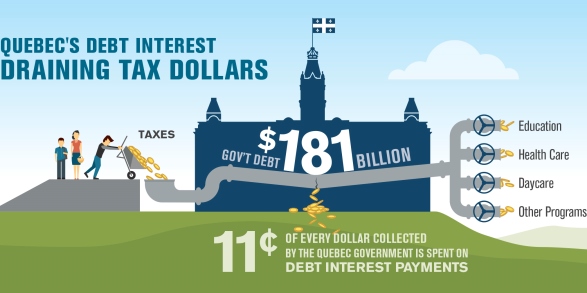In a recent column about the upcoming Metro Vancouver transit plebiscite, Vancouver Sun columnist Daphne Bramham complained about business leaders who talked “way more about cutting taxes for poor beleaguered taxpayers for the past 30 years than they have about the valuable services tax money provides.”
taxes
Premier Philippe Couillard recently declared that government finances and the economy are his top priorities, stating that “the goal is clear: consolidation of public finances and economic re-launch.” This is laudable.
With a call-for-comments, Ontario released its Climate Change Discussion Paper on Feb. 12. The plan is essentially a laundry list of public policies that have been sought by environmentalists and allies for decades.
After governments abandon fiscal prudence, they will soon search for any and all ways to tax people more. This is the reality playing out in Alberta where Premier Jim Prentice has floated multiple tax increase trial balloons.
This spring’s mail-in plebiscite will essentially ask Metro Vancouver voters if they’re willing to pay $250 million more in sales taxes each year to fund the $7.5 billion expanded transit system proposed by a council of the region’s mayors.
With oil prices plunging and provincial resource revenues expected to drop, Alberta’s red ink will rise. In response, Premier Jim Prentice has floated the notion of a provincial sales tax and/or hikes in other taxes.
The Ontario Liberals recently introduced legislation to create a mandatory government pension plan modelled after the Canada Pension Plan.
There are times when a problem can be solved with a small fix and perhaps a little tinkering. And there are times when a big fix or fundamental reform is needed. Quebec’s government finances fall into the latter category.
This year’s Economic Freedom of North America 2014 (EFNA) report shows that, once again, while we are the United States, our states have bigger differences than climate, seasons and terrain.

